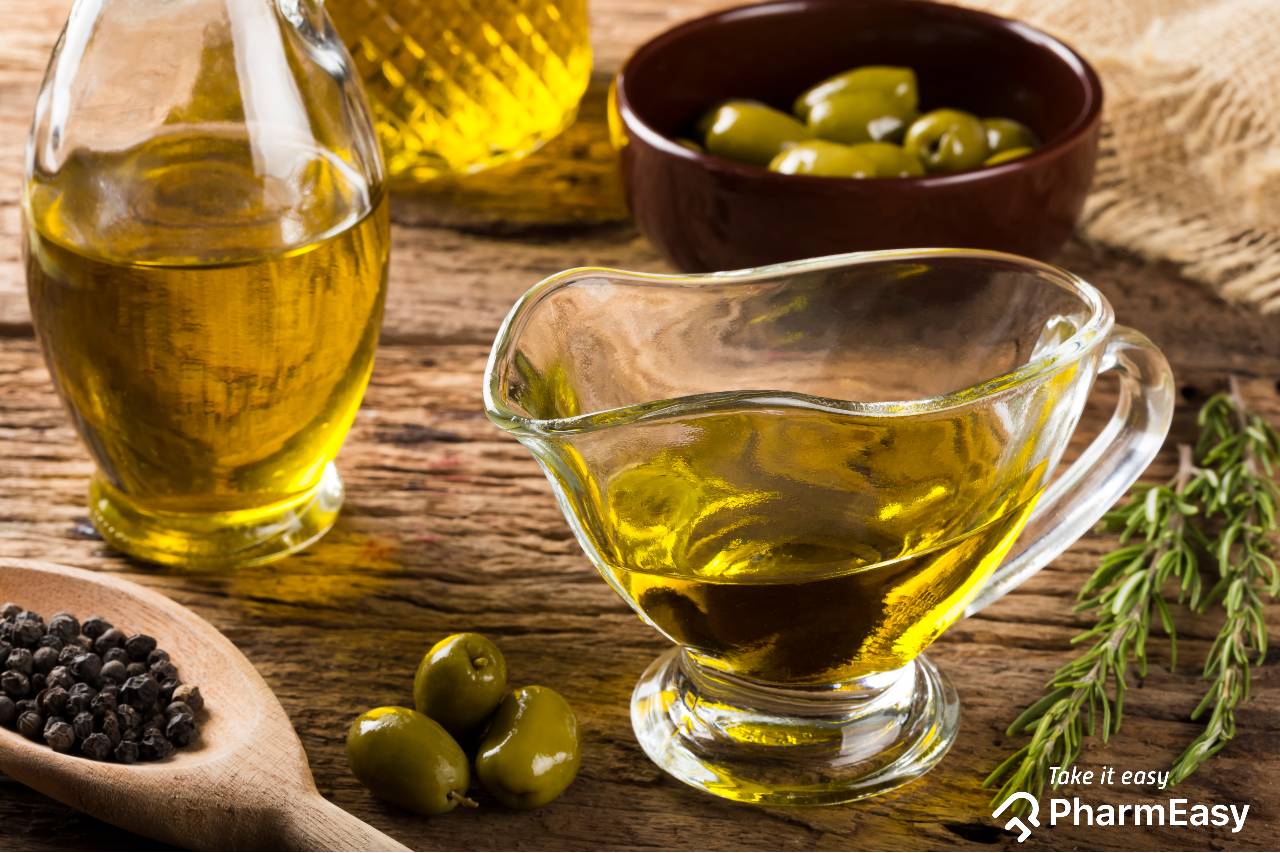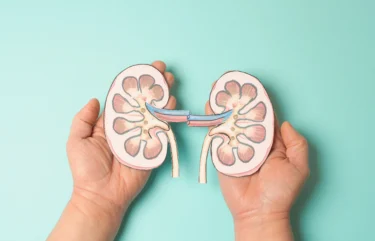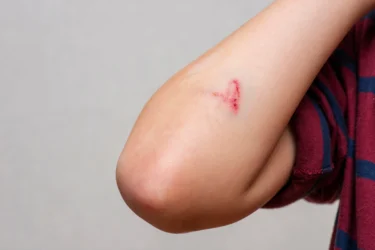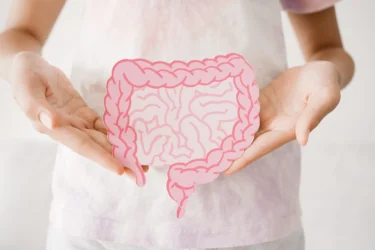Olive Oil: Uses, Benefits, Side Effects and More!
By Dr Rajeev Singh +2 more

Get,

to manage your symptom
Get your,


4 Cr+ families
benefitted

OTP sent to 9988776655



You’ve successfully subscribed to receive
doctor-approved tips on
Whatsapp

Get ready to feel your best.

Hi There,
Download the PharmEasy App now!!


Register to Avail the Offer
Send OTPBy continuing, you agree with our Privacy Policy and Terms and Conditions

Hi There,
Sign up on PharmEasy now!!
Trusted by 4 crore+ families

OTP sent to 9988776655



You have unlocked 25% off on medicines




Code: NU25
By Dr Rajeev Singh +2 more
Table of Contents
Olive (Olea europaea L.) is a small tree native to tropical and mildly temperate regions of the world that belongs to the Oleaceae family. The tree, famous for the olive, is commercially important in the Mediterranean region as a primary supplier of olive oil1.
The olive tree has long been used for possible medical and nutritional purposes. Olive leaf extracts might have been used to promote health. The high content of fatty acids and functional bioactive compounds such as tocopherols, carotenoids, phospholipids, and phenolics with diverse biological activities are primarily responsible for olive oil’s potential health benefits. These components also contribute to the distinct flavour and taste of olive oil. Similarly, they have been revered as a well-known folk remedy for fever and some tropical disorders such as malaria. Due to their bitterness, olives are rarely utilised in their natural form; nevertheless, they are ingested in one of two forms: oil or table olives1.

The olive oil is obtained from olives (the fruits of Olea europaea L. tree). It is a chief constituent of the Mediterranean diet and is currently gaining popularity as a component of a healthy diet among consumers in northern Europe, the USA, Canada, and other nations. Olive oil is produced almost entirely in Spain, Italy, Greece, Tunisia, Turkey, Morocco, and Portugal2.
Virgin olive oil is produced by mechanical procedures. Ordinary virgin olive oil, fine virgin olive oil, and extra virgin olive oil are the three edible grades of virgin olive oil2. Extra virgin olive oil comprises two chemical compounds: triglycerides (97 to 99 %) and minor components (1 to 3 %)3.
Did you know?
The nutritional content of 100 g of olive oil is4:
Various properties of olive oil are listed below.

Oleuropein, a phytoconstituent in olive, has antibacterial properties against bacteria, including mycoplasma. Furthermore, the phenolic chemicals in olive oil might degrade bacterial membranes, hence showing antibacterial actions. Several authors also claim that oleuropein might act against toxins produced by Staphylococcus aureus and might have an antiviral effect against herpes and hepatitis viruses. Oleuropein might also have an antiviral impact against the parainfluenza virus. Furthermore, the potential antiviral activity of olive leaf extract against the virus that causes acquired immunodeficiency syndrome has been proposed3.
The polyphenolic content of olive extract may be linked to a notable antibacterial action. Malaria infections may have been curbed with oral dosages of olive leaves. Studies have proven polyphenols may inhibit the development and reproduction of Bacillus cereus, Klebsiella pneumonia, Salmonella typhi and Escherichia coli. Olive oil has been demonstrated to have potential antibacterial properties for intestinal and respiratory infections5. However, its use needs to be confirmed by further research.

Olive oil has long been the main ingredient of the Mediterranean diet. Oleic acid and polyphenols have been shown to protect the liver in various animal studies and cell culture studies. These olive oil components have also been demonstrated to be helpful for different hepatic diseases, such as liver ballooning (increased liver size) and liver steatosis (fat accumulation in the liver), and might aid against drug-induced liver damage5.
Through the potential antioxidant effect of its polyphenolic contents, extra virgin olive oil might decrease inflammation, may reduce the risk of liver damage, and might slow the advancement of steatohepatitis (fat deposition in the liver). Researchers found that consuming extra virgin olive oil might reduce liver tissue damage in animal models. Furthermore, the combined therapy of olive oil and camel milk in animal models demonstrated possible liver protective effects in drug-induced liver toxicity due to their potent antioxidant action5. However, liver diseases can be serious and need proper diagnosis and treatment by a professional.

Olive oil’s phenolic antioxidants might help against the damaging effects of free radicals and the consequent alterations in cellular structures. Scientists investigated the impact of olive oil on colon cancer. Their findings suggested that the presence of antioxidants, phenolic compounds, and fatty acids in olive oil might play an essential role in lowering the risk of colon cancer3.
Studies have investigated the effect of hydroxytyrosol (antioxidant present in virgin olive oil) on cancer cell growth, apoptosis (cell death), and cell cycle. The findings support that hydroxytyrosol might help against cancer and may help trigger cancer cell death and stop the cell cycle. Olive oil contains vitamin E, which might protect the skin from the sun. As a result, it might help against premature ageing and skin cancer3. However, cancer is a serious disease and must be diagnosed and treated by a doctor.
Studies8 say that extra virgin olive oil may help people living with rheumatoid arthritis. Extra virgin olive oil is known to be beneficial due to its anti-inflammatory properties. The long-term, progressive, multi-step, and complicated process of rheumatoid arthritis causes inflammation in a number of joints, causing severe swelling and stiffness in the joints as well as bone and cartilage degradation and joint degeneration and the use of this oil may help ease the inflammation and stiffness.
Dr. Rajeev Singh, BAMS

As dietary virgin olive oil and olive leaf extract might help protect kidneys from damage in animal models, it is well known that virgin olive oil is helpful against the progression of kidney damage generated by various chemical agents. It was found that a combination of olive oil and naringenin containing drugs might curb kidney damage in rats by potentially increasing renal function and lowering serum urea and creatinine concentrations5.
Another study5 found that extra virgin olive oil might help reduce the chances of kidney damage in drug-exposed animal models while also improving the antioxidant and health status of the animals. Furthermore, the administration of extra virgin olive oil significantly lowered inflammatory markers, uric acid, creatinine, and urea levels in the serum of an animal model. According to studies, the control of kidney damage by olive oil consumption was due to its phenolic components, which acted as potent lipid peroxidation inhibitors.

Olive oil can act as a barrier between open wounds and the surroundings. Furthermore, olive oil might speed up wound healing by sterilising the wound surface and helping fight against infections3. However, the effects of olive oil need more scientific backup in the form of research.

Olive oil might have the following actions like increasing high-density lipoprotein, decreasing low-density lipoprotein, reducing cholesterol and triglycerides, and decreasing cholesterol to high-density lipoprotein ratio3.
Nearly two-thirds of people with diabetes die as a result of heart disease. One of the significant risk factors for heart disease in diabetics is increased blood glucose and lipids levels. According to scientists, replacing solid vegetable oil with olive oil in the diet of diabetic patients might be more efficient than sunflower oil against heart diseases due to the favourable effect of olive oil on blood glucose and lipid parameters3. Their use for this purposes is not yet confirmed. Moreover, you should always consult a doctor for serious conditions such as heart diseases.

Olive oil constituents like fatty acid and polyphenols may be absorbed through the gastrointestinal tract, and some penetrate specific brain areas. Polyphenols and vitamin E have considerable antioxidant effects on accumulated free radicals in the brain, neutralising them in the case of ischaemia (inadequate blood supply to an organ or tissue)3.
Ischaemia, hypoxia (low oxygen level), and free radicals can harm the brain. Consumption of olive oil following ischaemia can reduce brain cell death and protect the brain from toxic substances. According to the findings of one study, pre-treatment with virgin olive oil resulted in reduced levels of cell death and, as a result, lower levels of stroke in the studied animal model. This was most likely due to changes in the brain lipid composition3.
Olive oil might have a favorable effect on Parkinson’s disease (brain disorder) because the polyphenols in olive oil which can affect a cellular mechanism involved in the disease’s development and progression. According to laboratory experiments, oleuropein (a component of olive oil) might have the potential to diminish cell damage, apoptosis (cell death), and oxidative stress, suggesting the brain-protective effect of oleuropein5.

A protective effect of extra virgin olive oil’s polyphenols against ulcerative colitis (inflammatory bowel disease) progression has been studied. The extract of olive oil polyphenols was able to inhibit the production of hydrogen peroxide and nitric oxide triggered by oxysterols (a by-product of cholesterol synthesis) and preserve cellular antioxidant levels in the intestines. Furthermore, olive oil’s phenols may have blocked the key inflammatory processes driven by oxysterols6. However, more research is required to prove these claims and potential benefits of olive oil for human health.
Though there are studies that show the potential uses of olive oil in various conditions, but these are insufficient and there is a need of further studies to establish the true extent of benefits of olive oil on human health.
From my knowledge, the components of extra virgin olive oil may help preserve the neurological system and may be helpful against sadness and anxiety, according to a 2013 research done on mice. Researchers recently discovered that people who ingested trans-fats, an unhealthy lipid prevalent in fast food and pre-packaged baked products, were more likely to experience sadness than persons who consumed unsaturated fats like olive oil9.
Dr. Siddharth Gupta, B.A.M.S, M.D (Ayu)
Olive oil can be used as:
You must consult a qualified doctor before taking any herbal supplements. Do not discontinue or replace an ongoing treatment of modern medicine with an ayurvedic/herbal preparation without consulting a qualified doctor.
Also Read: Castor Oil – Uses, Benefits, Precautions & More!
There are no major side effects of olive oil reported by far. If you experience any side effects, seek immediate medical help from your doctor who has prescribed it to you. They will be the best guide for providing proper treatment to overcome side effects.
The safety studies of olive oil on pregnant and breastfeeding women have not been documented. Likewise, there is no information available on the safety studies of olive oil in children. Therefore, it should only be taken under the supervision and advice of a physician.
Also Read: 6 Simple Health Benefits of Essential Oils!
There is not much information available on how olive oil interacts with other medications. Hence, patients should consult a doctor before taking olive oil if they take any other drug or supplement.
Also Read: Sunflower Oil: Uses, Benefits, Side Effects By Dr. Rajeev Singh
It is an oil obtained from the Olea europaea L. tree fruits2.
Olive oil might be good for hair. According to a study6, the carotenoids in olive oil helps in treating the internal region (cortex) of the hair fibre, hence it might help strengthen hair. However, concrete evidence is needed in the form of more research.
Olive oil might be good for the face. The concomitant use of other oils such as buckthorn oil with olive oil might have positive effects on the skin7.
Olive oil might have positive effects on health. The high content of fatty acids and functional bioactive compounds such as tocopherols, carotenoids, phospholipids, and phenolics with diverse biological activities are primarily responsible for olive oil’s potential health benefits. However, more research is required to ascertain these claims.
Olive oil is of various types: virgin olive oil (edible), extra virgin olive oil (edible), refined olive oil (edible), olive-pomace oils (non-edible) and lampante olive oil (non-edible)4.
It is a principal constituent of the Mediterranean diet2. Apart from its nutritional value, it might have potential use for its potential antioxidant, anti-inflammatory, anti-microbial, anti-tumour, anti-platelet aggregation, blood pressure-lowering, immunity enhancing, anti-allergic, hypolipidemic, wound healing, kidney-protective, heart-protective, liver-protective and brain-protective activities. However, more research is required to prove these possible effects of olive oil on human health.
Olive oil is used for cooking. It is commonly used in food preparations such as salad oil, cooking oil, frying and pasta sauces1.
Yes, extra virgin olive oil is used for cooking. Extra virgin olive oil, fine virgin olive oil, and ordinary virgin olive oil are the three edible grades of virgin olive oil2.
Olive oil might help lower blood cholesterol levels. Consuming olive oil might lead to a reduction in cholesterol levels3. However, more research is required to prove these effects.
Yes, olive oil might be helpful for ulcerative colitis. The polyphenols of the extract of olive oil might inhibit the production of hydrogen peroxide and nitric oxide and might preserve cellular antioxidant levels in the intestine6. However, more research is needed to ascertain such claims.
Disclaimer: The information provided here is for educational/awareness purposes only and is not intended to be a substitute for medical treatment by a healthcare professional and should not be relied upon to diagnose or treat any medical condition. The reader should consult a registered medical practitioner to determine the appropriateness of the information and before consuming any medication. PharmEasy does not provide any guarantee or warranty (express or implied) regarding the accuracy, adequacy, completeness, legality, reliability or usefulness of the information; and disclaims any liability arising thereof.
Links and product recommendations in the information provided here are advertisements of third-party products available on the website. PharmEasy does not make any representation on the accuracy or suitability of such products/services. Advertisements do not influence the editorial decisions or content. The information in this blog is subject to change without notice. The authors and administrators reserve the right to modify, add, or remove content without notification. It is your responsibility to review this disclaimer regularly for any changes.
Comments

Leave your comment...
You may also like
Comments